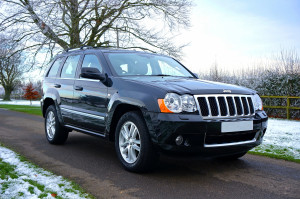Non-Owned Automobiles
When Personal Vehicles Become Business
Company-owned vehicles are not the only ones used for business purposes – in many companies, employees use their own vehicles as well. Employees who operate their own vehicles to carry out business create liability exposure, just as if they were driving a company-owned vehicle.
When an employee is determined to be driving their own vehicle in the course and scope of employment, your company could be liable for any damages or injuries sustained as a result of an accident. It may only take one accident that results in a claim to spiral into a significant loss
Examples of such employees who often drive personal vehicles for business are:
route drivers and other delivery persons
inspectors and testers
repair and maintenance personnel
property managers
sales representatives
construction employees or supervisors who visit multiple job-sites
These employees aren’t the only ones posing a liability risk by using their own vehicles. No matter the frequency or duration of time, any occasion in which non-company-owned vehicles are used for business purposes presents a risk to your company. Since accidents can happen at any time, employees on business trips or taking clients to lunch are also exposed to risk and pose a liability exposure. Even when an employee, or potentially even a part-time employee or an intern, just runs a quick business errand, your company is exposed to a potential claim in the event an accident occurs. The optional coverage for non-owned automobile liability assumes the employee has adequate limits of personal
automobile insurance coverage (and the rating for this coverage is based on that assumption). Usually an employee’s auto insurance provides the primary insurance, even if used for business purposes; however, if charges exceed the limits of the employee’s policy, they are passed on to the company. In order to confirm adequate limits of personal automobile insurance coverage are in fact attained by employees, it is important to have a company protocol for all employees who use their own vehicles for business purposes. This company policy can help minimize liability exposure in the case of an
accident by ensuring that some level of bodily injury and property damage coverage is in place.
The following are suggestions for a company non-owned automobile policy:
Require a copy of the employee’s personal auto policy (declarations page, not just an auto ID card)
Confirm in writing that employees carry at least $100,000 per person/$300,000 per accident automobile liability insurance limits
Re-check employees’ policies and documentation every six months
Confirm coverage for all employees who drive non-owned automobiles, even if it is infrequently
Conduct annual motor vehicle record checks and have set criteria in place to judge an acceptable record vs. a poor record
